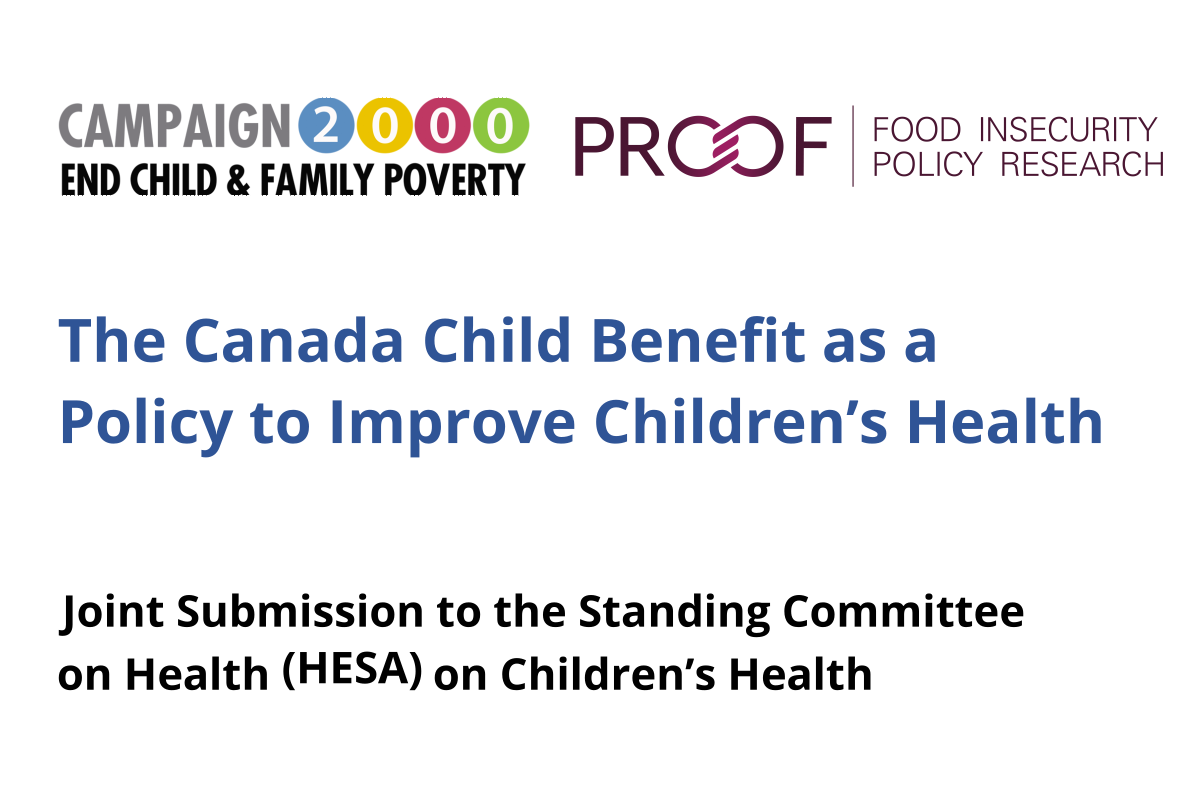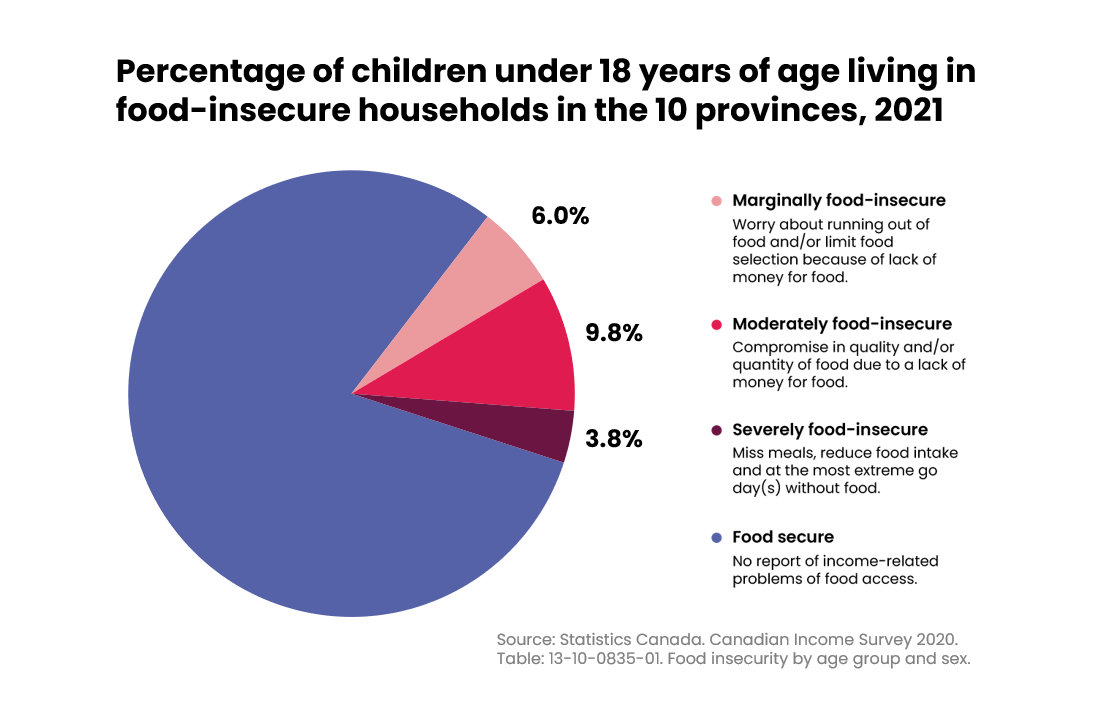PROOF and Campaign 2000 submits brief to Standing Committee on Health
December 6, 2022

The House of Commons Standing Committee on Health is currently conducting a study on children’s health. In collaboration with Campaign 2000, we submitted a brief on the implication of food insecurity for children’s health and how the federal government could improve children’s health by addressing poverty and food insecurity through the Canada Child Benefit (CCB).
In 2021, almost 1.4 million children under 18 in the ten provinces lived in a food-insecure household, and this situation is likely even worse now, given the unprecedented inflation in costs of basic needs. Despite the statistics documenting reductions in child poverty in recent years, progress has stalled. Monitoring of household food insecurity in Canada has shown that many families with children are still unable to afford basic needs like adequate food.
The Canada Child Benefit (CCB) has failed to insulate many low-income families from poverty and food insecurity. These circumstances have severe impacts on children’s immediate and long-term health, development, and occupational and social life chances.
Ensuring that children aren’t growing up in food-insecure households is critically important given the serious impacts on their health and development starting from birth.
Recommendations
Given the evidence that household food insecurity is a potent determinant of children’s health that can be substantially reduced by policies improving the financial circumstances of low-income households, we recommend that the federal government:
- Create a CCB End of Poverty Supplement as described in the 2023 Alternative Federal Budget to significantly increase the poverty reduction effect of the CCB.
- Create a CCB supplement for remote and Northern communities to address the exceedingly high proportion of food-insecure households and elevated costs of living.
- Broaden access to the CCB:
- for families with precarious immigration status by repealing legislation tying eligibility of the CCB to immigration status;
- by expanding the circle of people able to attest to a child’s residency and ensuring that kinship, customary care, and families caring for children outside a formal arrangement have access to the CCB.

